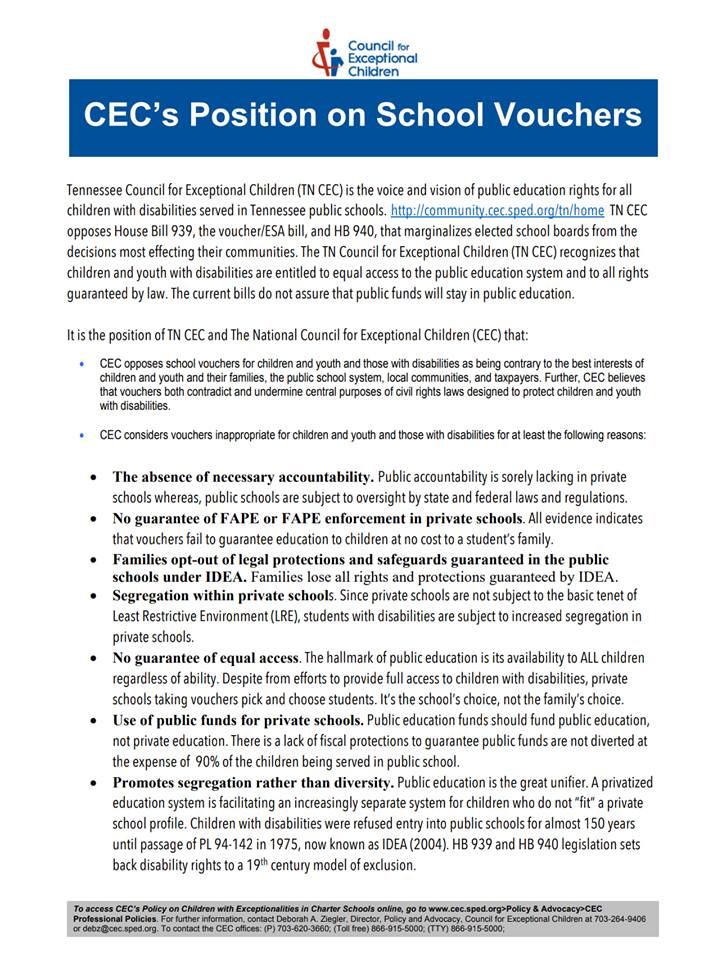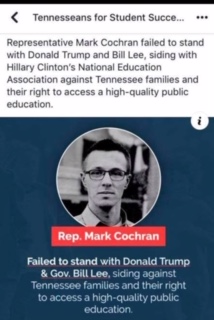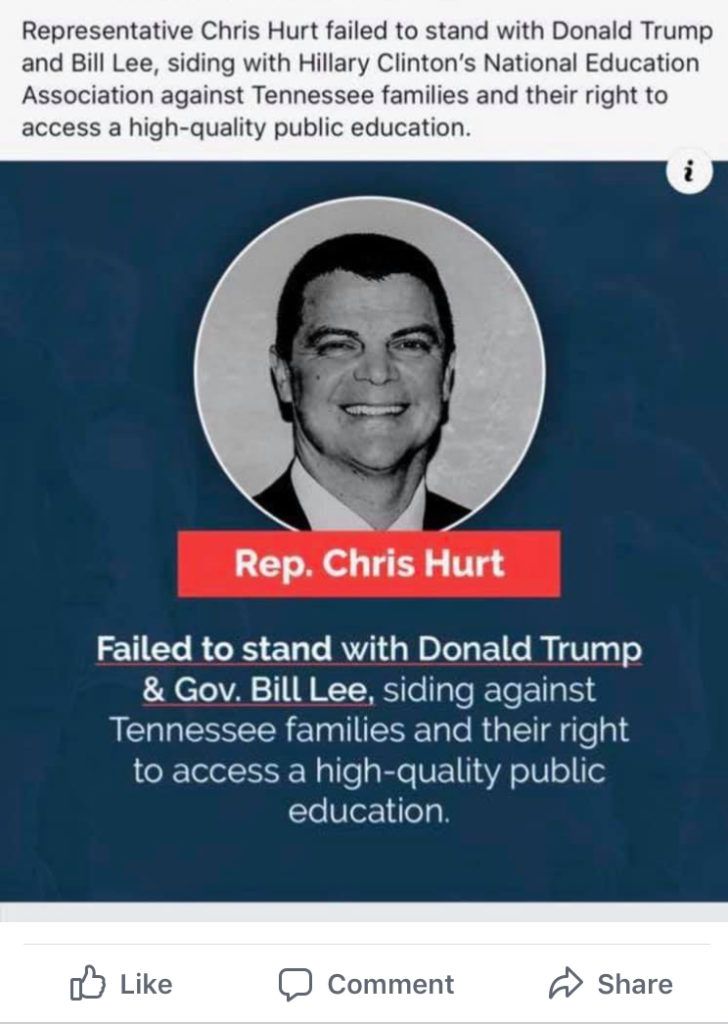Tennessee Governor Bill Lee is putting on the full court press in his quest to voucherize our state’s public schools. He’s got allies like dark money group “Tennesseans for Student Success” putting out hit pieces on voucher opponents, and on Monday, he’ll have Education Secretary Betsy DeVos appearing with him at a school choice event in Nashville.
DeVos is perhaps best known for her irrational fear of grizzly bear attacks on schools. Just last week, she appeared before a congressional committee and suggested larger class sizes are good for student learning, despite citing no evidence for that claim.
Now, she’s headed to the Volunteer State to offer up opinions on why Tennessee should adopt the type of voucher scheme most susceptible to fraud and least likely to improve student achievement.
It’s no surprise Lee and DeVos will be joining forces to sing the praises of using taxpayer dollars to fund unaccountable private schools. Soon after winning the governor’s race, Lee named two key DeVos disciples to leadership roles in his administration. Lee also has a track record of backing the DeVos privatization organization.
It should be clear by now that Bill Lee is determined to bring a failed model of “free market” education to Tennessee. Here’s more on what the DeVos agenda brought to Michigan:
Chaos. Uncertainty. Instability. That’s what a free market approach to public education brought Detroit. And, sadly, it also resulted in academic outcomes even worse than those expected in one of the worst public school districts in the country.
Choice advocates would have us believe that having more options will lead to innovation and force the local district to improve or close schools. Instead, in the case of Detroit, it led to chaos. The same fate could be visited upon other large, urban districts who fall into the free market education trap. Another unfortunate lesson from Detroit: Once you open the door, it’s very, very difficult to close.
Bill Lee is pulling out all the stops on an agenda that is destructive to public education and insulting to our state’s teachers. Perhaps his joint appearance with DeVos will convince any doubters of Lee’s true colors. Until then, here’s a message for DeVos:
For more on education politics and policy in Tennessee, follow @TNEdReport
Your support makes reporting education news possible.









